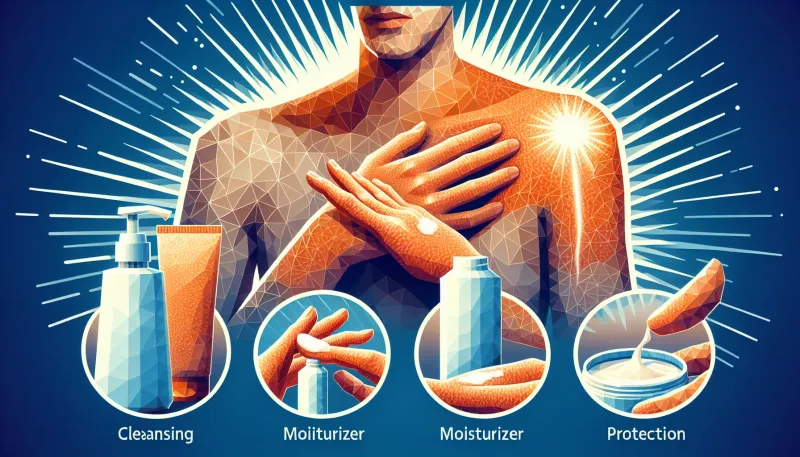Effective Psoriasis Skin Care Routine: Tips for Clearer Skin

Discover an effective psoriasis skin care routine with well-researched tips and strategies for managing and improving your skin health.
Introduction
Psoriasis is a chronic skin condition that affects millions of people worldwide. Characterized by itchy, scaly patches, it can significantly impact quality of life. Although there's no cure for psoriasis, effective skin care routines can help manage the symptoms and improve the appearance of your skin. This article will provide you with well-researched tips and strategies to help you establish an efficient psoriasis skin care routine.
Understanding Psoriasis
Psoriasis is an autoimmune disorder that causes skin cells to multiply up to ten times faster than normal. This rapid skin cell production results in bumpy red patches covered with white scales. Recognizing the different types of psoriasis and their triggers is crucial in managing the condition effectively.
Types of Psoriasis
- Plaque Psoriasis
- Guttate Psoriasis
- Inverse Psoriasis
- Pustular Psoriasis
- Erythrodermic Psoriasis
Common Triggers
- Stress
- Infections
- Cold, dry weather
- Injury to the skin
- Smoking and heavy alcohol consumption
Building an Effective Psoriasis Skin Care Routine
An effective psoriasis skin care routine involves consistent and gentle care to manage symptoms and prevent flare-ups. Here are the key components:
1. Cleansing
Use a gentle, fragrance-free cleanser to avoid irritating your skin. Opt for lukewarm water instead of hot, as hot water can strip your skin of its natural oils.
2. Moisturizing
Moisturizing is crucial in a psoriasis skin care routine. Apply a rich, emollient moisturizer immediately after bathing to lock in moisture. Look for ingredients like ceramides, glycerin, and hyaluronic acid.
3. Topical Treatments
Topical treatments, including corticosteroids, vitamin D analogues, and retinoids, can help reduce inflammation and slow down skin cell turnover. Consult your dermatologist for the most appropriate options.
4. Sun Protection
Sun exposure can benefit some psoriasis patients, but overexposure can worsen symptoms. Use a broad-spectrum sunscreen with at least SPF 30 when spending time outdoors.
5. Avoid Triggers
Identify and avoid your personal triggers, such as stress, certain foods, or skincare products that irritate your skin. Keeping a diary can help you pinpoint these triggers.
Additional Tips for Managing Psoriasis
In addition to an effective skin care routine, consider these lifestyle adjustments to help manage psoriasis:
Healthy Diet and Hydration
A balanced diet rich in anti-inflammatory foods, such as fruits, vegetables, and omega-3 fatty acids, can help reduce inflammation. Staying well-hydrated is also essential for maintaining skin health.
Stress Management
Stress is a common trigger for psoriasis flare-ups. Incorporate stress-reducing activities like yoga, meditation, or deep-breathing exercises into your routine.
Regular Exercise
Regular physical activity can boost your overall health and reduce stress, which may help manage psoriasis symptoms. Choose low-impact activities that won't irritate your skin, such as swimming or cycling.
Seek Support
Living with psoriasis can be challenging. Joining a support group or seeking counseling can provide emotional support and practical advice for managing the condition.
Conclusion
Managing psoriasis requires a comprehensive approach that includes a dedicated skin care routine, lifestyle changes, and professional medical advice. By implementing these tips and strategies, you can help control your symptoms and improve your skin’s appearance. Always consult with a dermatologist to tailor a psoriasis skin care routine that works best for you.



























